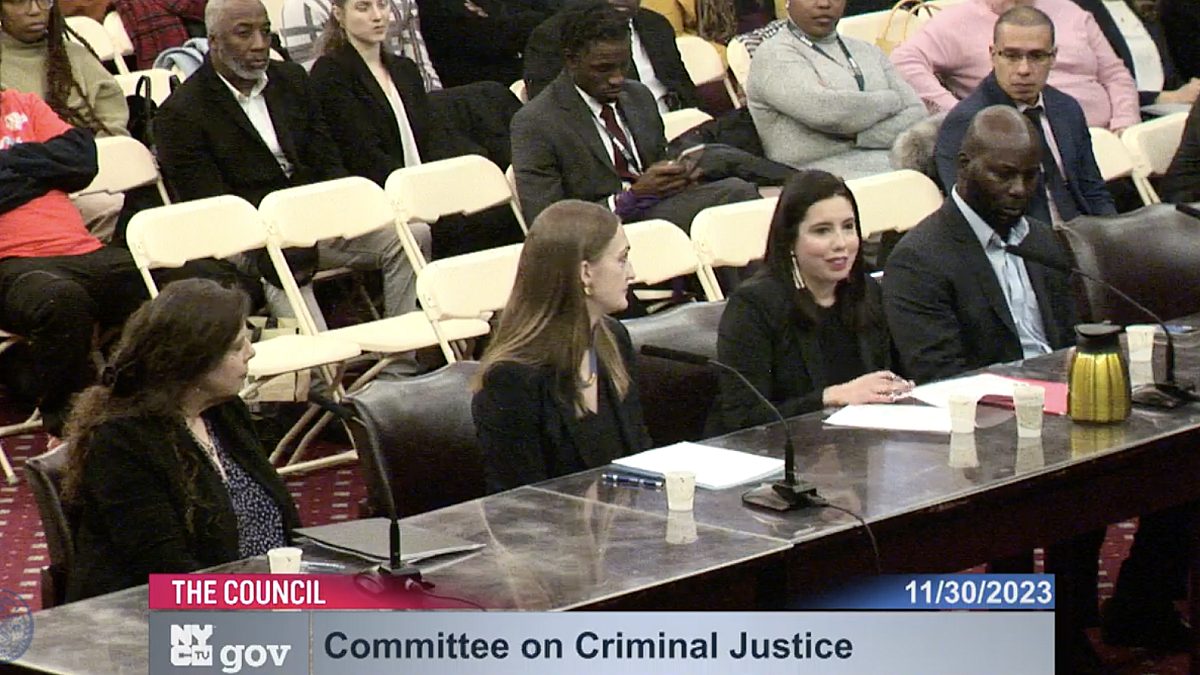Testimony: The New York City Council Committee on Criminal Justice

Jackie Gosdigian, Supervising Policy Counsel at Brooklyn Defender Services (BDS) testified before an Oversight Hearing on Alternatives to Detention and Incarceration in NYC held by the New York City Council's Committee on Criminal Justice.
Today, New York State has over 30,000 people languishing in state prisons. 75% are Black or brown. New York’s commitment to mass incarceration helps fuel America’s shameful standing as the largest cager of human life in the world, with more than two million people detained in prisons, jails, and immigrant detention facilities throughout the country. Mass incarceration does not make our communities safer. In fact, years of research have shown that crime rates, public safety, and community health are more likely to be negatively affected by incarceration than they are to be improved.
People who are jailed have much higher rates of social, economic, and poor health outcomes than the general public. These problems should not–and cannot–be addressed through incarceration in prisons or jails. The safest communities are the communities with the most resources. Investing in prisons and jails is a failed policy that has not created safety, but rather further degraded under-resourced communities. When people who are accused or convicted of a crime are incarcerated, they are removed from their community, family, job, school, and other critical support systems. ATD and ATI programs help people address the issues that led to their involvement with the criminal legal system while also allowing them to remain in the community, build critical skills, access medical care, mental health treatment, and substance use treatment, and pursue job training and opportunity. Instead of isolation and incarceration–which comprises a person's physical safety and emotional health, weakens relationship, and diminishes economic prospects , ATIs and ATDs can help people meet their professional, educational, and health goals, which may help mediate future interactions with the police.
...
It is clear, based upon decades of research, that a pro-incarceration model is not only unsuccessful in preventing violence, it destroys communities by causing irreparable harm to families and future generations. As an alternative, BDS welcomes the opportunity to work with the city to create opportunities for people who have been arrested to participate in programming. We thank the Committee on Criminal Justice for continuing to recognize the importance of alternatives to incarceration and detention. We urge the city to go further. To commit to funding free programs that set our clients up for success. To commit to expanding the availability of ATIs and ATDs for individuals charged with violent felonies or gun offenses. To vocally support ending mandatory minimums and passing The Youth Justice and Opportunities Act and Treatment not Jails. These three pieces of legislation would help stabilize communities, promote public health, and increase safety for all. Lastly, while post-arrest programs can be a successful method to provide services for our community members, we ask the Council to continue to address the problems in our communities that create the risk of criminal legal system involvement in the first place, such as lack of stable housing, access to gainful employment and access to substance use and mental health care.
Read the full testimony here.